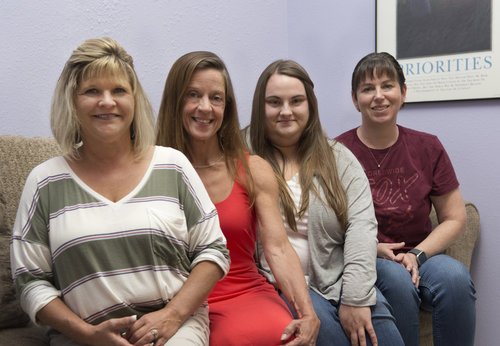Elder Abuse: If you see something, say something
Seniors deserve respect, compassion, and attention
June is Elder Abuse Awareness Month
From Washington Gorge Action Programs:
By Teresa Clyne, Programs for Peaceful Living
Elder abuse is a widespread problem in every culture, and once a year, recognition is given during the month of June. This provides an opportunity for communities worldwide to promote a better understanding of the abuse and neglect of older persons.
Protecting our elderly population is the focus of Elder Abuse Awareness Month, with June 15 set aside as Elder Abuse Awareness Day. Initially observed in 2006 by the International Network for the Prevention of Elder Abuse, the United Nations General Assembly adopted the day of recognition in 2011.
WAGAP’S PROGRAMS FOR PEACEFUL LIVING TEAM
Elder abuse is an intentional act or failure to act that causes or creates a risk of harm to an older adult. It can also be a deliberate action, or failure to take necessary action, that results in real or potential harm to an elder.
Seven types of Elder or vulnerable adult abuses are identified: Neglect, Physical abuse, Sexual abuse, Abandonment, Emotional or psychological abuse, Financial abuse or exploitation, and Self-neglect. All types of elder abuse can lead to devastating consequences, including physical and/or emotional harm and even death.
Whether it is physical, mental, or sexual mistreatment, financial exploitation, or improper use of an elder or vulnerable adult’s income or resources, elder abuse is considered a crime in Washington.
Under Washington State law, a vulnerable adult is a person who is:
60 years of age or older who has the functional, mental, or physical inability to care for himself or herself; or
Found incapacitated; or
Who has a developmental disability; or
Admitted to any facility; or
Receiving services from home health, hospice, or home care agencies licensed or required to be licensed; or
Receiving services from an individual provider; or
Who self-directs his or her own care and receives services from a personal aide.
Caregiver neglect is also a crime. A caregiver can be a relative, nursing home staff, or a hired in-home caregiver.
Warning signs of abuse may include a variety of behaviors and physical indicators:
Suspicious or unexplained injuries such as bruises, black eyes, welts, broken bones, cuts, sprains, sudden changes in behavior, or a caregiver refusing to leave the elder adult alone around other people.
Isolation of the individual where they are kept from or are repeatedly absent from normal activities with family, friends, or social events. Or they may repeatedly be missing or canceling regular medical or professional appointments or stopping them without communication.
Sexual abuse may appear as unusual bruising on the thighs or chest, unexplained STDs, unexplained behavior such as withdrawing from social interactions, or panic attacks.
Changes in behaviors or obvious personality changes where the elder may act fearful or flinch in the presence of their caregiver or cry for unknown reasons. Or they become verbally aggressive and defensive, unlike the individual’s normal behavior. Sometimes the individual or the caretaker’s explanation of behaviors or physical indicators doesn't make sense or may sound irrational.
A Caregiver is mentally abusing the senior in public, threatening significant mental and emotional harm by using derogatory names and insults, profanity, ridicule, and/or harassment, or humiliation in order to gain control.
The sudden appearance of unknown individuals or previously uninvolved relatives that take over personal and financial matters and unexplained financial changes or missing money and personal belongings. Financial exploitation looks like basic needs are not being met, bills go unpaid, and unusual purchases or unexplained financial activities are occurring.
Self-neglect.
It can be easy to overlook some of these signs, and this month, and the annual day of recognition, reminds us how important it is to look out for elders and vulnerable adults in our communities.
Respect, compassion, and attention are what our seniors deserve every day of the year. If you see something of concern, contact Adult Protective Services at 1-877-734-6277.
If you have a loved one or friend living in a care facility like a nursing home, adult family home, or assisted living, or if they are receiving any supportive living services at home, report any abuse or neglect you suspect: 1-800-562-6078.
If you suspect financial abuse or exploitation, notify the vulnerable person’s local banking institution and law enforcement or call the National Elder Fraud Hotline at 833–FRAUD–11 or FINRA Securities Helpline for seniors at 844-57-HELPS (844-574-3577).
Don’t be a non-involved bystander. If you see something, say something. Even if you just suspect abuse, report it. Call local law enforcement and Adult Protective Services. If you need help, contact Programs for Peaceful Living for assistance at 509-773-6100 or 509-493-2662.


